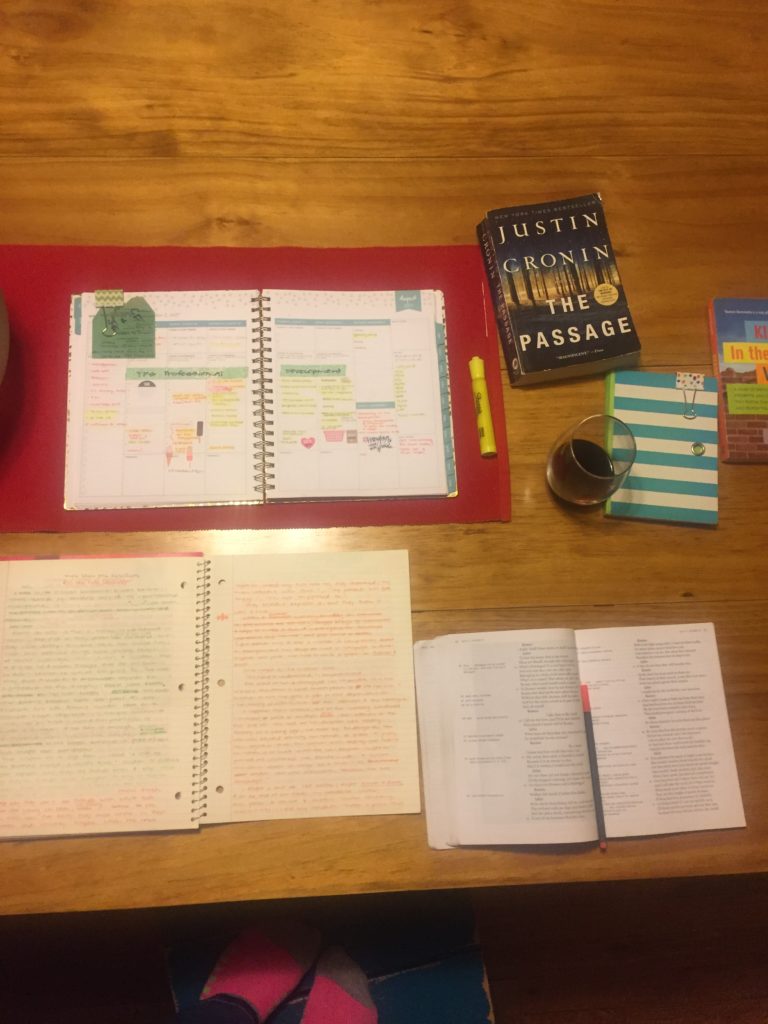At the grocery story, I misread “violets” for “violence” on a bottle of wine. “Bold, with hints of violence,” and I think, “Why would I want to drink something with hints of violence?” What does violence taste like?
I went to the grocery store because I’m stuck on a last chapter and also because we need food, so I figured I may as well make myself useful. Sitting at the dining room table crying onto the only paragraph I’d written that took me 2 and 1/2 hours to write and I’m not even sure it’s any good isn’t useful.
I’ve been stuck for weeks and I know why. I’m writing about Romeo and Juliet and Juliet’s just drunk the poison that’ll fake her death. It all goes downhill from there. I’m writing towards tragedy, and it’s too hard. I can’t do it. I hate the Friar for what he did. I feel so bad for Juliet’s mother when she pleads, “Revive, look up, or I will die with thee!” I ache at how business-like Romeo is when he believes Juliet is dead, and so begins to plan his death.
I don’t think I can get it done. I don’t think I can write anything about this play without sounding so trite even Instagram would say, “No, no. Too much glitter. We’re blocking this.”
Last night I was texting a couple of friends about Justin Cronin’s The Passage. A friend gave it to me, and I in turn, told another friend to read it. We were all talking about this scene where a little girl is walking among these really violent, pathetic creatures that were once human, and she names each one. Once she names them, once she tells them who they are, they can die. It’s one of the saddest, most peaceful scenes I’ve ever read – like the “glooming peace” the Prince calls the situation at the end of Romeo and Juliet.
“But here’s my question,” I tell my friends. “The book is like, 800 pages long, and this happens somewhere in the 500s.” This little girl naming these creatures (they’re called virals) is the point the story shifted for me. Like my friend said, it is no longer plot driven. It has become a spiritual metaphor. “Did all that other stuff have to happen? Couldn’t Cronin have written this scene on say, page 230?” By then, I didn’t need convincing I was in a dire situation. Severals times while reading I had to put the book down because I didn’t think I could take it anymore. “Or is the length of the book doing something? Is that a literary choice? Is the length of the book a spiritual metaphor?” This is what it’s like to endure. This is what it’s like to bear witness. We drink violence.
“Are you going to the game or are you avoiding the game?” the cashier asks the woman in front of me. She’s referring to the University of Michigan football game. It’ll begin in an hour.
“Avoiding,” the woman says with a grumble, and the cashier nods her approval.
I don’t know how you can avoid it, I think as I load the groceries into the car. I don’t know if I’d want to. I loved football Saturdays in South Bend, and I love them in Ann Arbor. I drive down Stadium Boulevard and marvel at all these people in their U of M garb heading towards the Big House. Even the leaves have turned maize, wanting to do their part, though being a part of the story will kill them. I guess that’s the lesson. No matter the outcome, we want in on the game.
So we walk towards it, and we promise to watch, not matter what happens. “These violent delights have violent ends.” They are bold, and smooth, but be careful of the undertones.
Sip carefully.


Leave a Reply